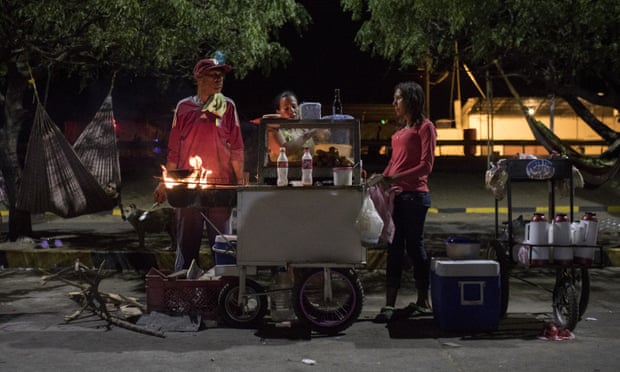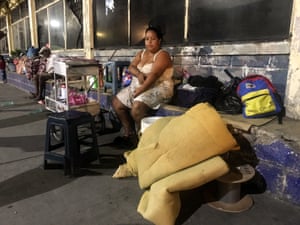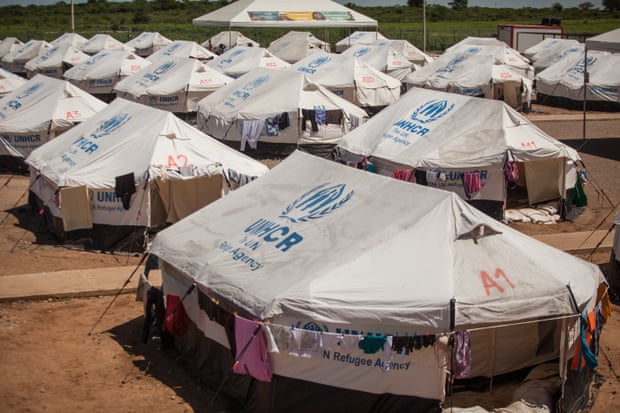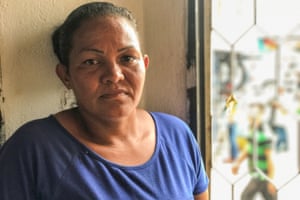- UID
- 20
- Online time
- Hours
- Posts
- Reg time
- 24-8-2017
- Last login
- 1-1-1970
|
|
━━━━━━━━━━━━━━━━━
Driven from their homeland by economic chaos, tens of thousands of people are living a precarious existence on the dangerous streets of Maicao in northern Colombia.

Venezuelan migrants run a street food stall at a bus terminal in Maicao, La Guajira, in northern Colombia. Photograph: Bloomberg/Getty Images
▼ Axleny Machado has slept on a piece of foam outside Maicao’s main bus terminal since she arrived from Venezuelaa year ago. She’s one of thousands who live this way in the arid border city in La Guajira, northern Colombia, which is now struggling with the huge influx of migrants and refugees.
Machado, 24, has a small trolley she rents for 90p a day to sell cigarettes, coffee and sweets to commuters. If lucky, she makes about £4 a day – enough to look after herself. She wants to leave Maicao for another Colombian city and look for opportunities, but money doesn’t permit.
Since sleeping at the bus terminal, she’s been robbed of her passport, clothes and phone.

Axleny Machado at the bus terminal in Maicao, where she sleeps on a piece of foam. Photograph: Steven Grattan
“I prefer to sleep here than in the city centre – it’s really dangerous now,” she says, sitting on a bench outside the bus station with her sister as her mother sweats over a gas stove, cooking rice.
Maicao’s streets are bursting with homeless Venezuelans taking refuge. Mothers with small children sleep on flattened-out cardboard boxes on dirty pavements. Drug use and sex work are rife and resources are scarce. The central market is one of the main areas in which they reside.
Since Venezuela’s economic collapse began under the presidency of Nicolás Maduro in 2016, violence, insecurity and a severe lack of basic food and medicine have caused more than 4 million people to flee. An estimated 1.5 millionhave settled in Colombia.
About 59,500 have settled in Maicao, smaller in size and with less public infrastructure than the more popular migrant entry point of Cúcuta, and it’s struggling to cope.
A UN assessment of Venezuelans’ living conditions in Maicao found almost half were living on the streets, or in informal settlements in and around the city.

Maicao is struggling to cope with the influx of people fleeing Venezuela. Photograph: Anadolu Agency/Getty Images
A year ago, with public spaces and local infrastructure like hospitals and schools starting to collapse, the city’s mayor pleaded with the UN for help. The UN refugee agency, the UN High Commissioner for Refugees (UNHCR), opened its first camp in Colombia, giving a maximum of one month’s temporary respite to the most vulnerable.
Yolimar Ochoa, 34, was allowed six weeks in the camp. Single, pregnant and with five young children, she was sleeping on the streets. Her baby was born not long after leaving the camp, and she’s thankful to the UN and organisations like Mercy Corps who provided her with temporary cash payments for basic needs. It helped her pay for a small bedroom near the overcrowded marketplace she shares with all her children, the eldest 16, who is pregnant. None of them currently attend school.

Yolimar Ochoa and her five children slept rough for a year. Photograph: Steven Grattan
Now her money is running out. “I don’t want to go back to the street again. There are a lot of really bad people around here,” she says, (▪ ▪ ▪)
► Please, continue reading this chronicle here: Source |
|